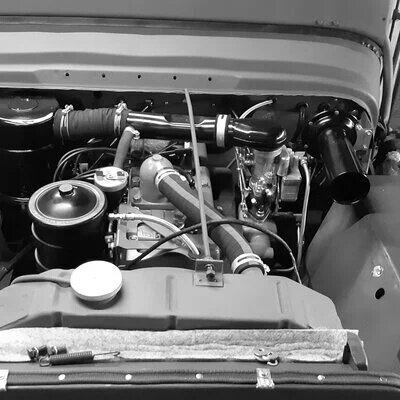Maintaining Your WW2 vehicle: When to Replace the Oil Filter in Your 80-Year-Old Vehicle

Introduction: Owning a vintage car is a labor of love. Maintaining an 80-year-old vehicle requires careful attention to detail. One crucial aspect of upkeep is knowing when to replace the oil filter. In this guide, we'll explore the factors to consider and offer tips for keeping your vintage ride purring like a well-oiled machine.
Understanding the Importance of Oil Filters: Oil filters play a vital role in the health and longevity of your engine. They remove contaminants and debris from the oil, preventing them from circulating and causing damage. Over time, however, oil filters can become clogged, reducing their effectiveness and potentially leading to engine wear and tear.
Factors to Consider:
-
Mileage: While modern cars often follow specific manufacturer recommendations, older vehicles may not have such guidelines. As a general rule of thumb, aim to change the oil and filter every 3,000 to 5,000 miles, depending on your driving habits and the type of oil used.
-
Time: Even if you don't drive your vintage car frequently, it's essential to change the oil and filter at least once a year. Oil can break down over time, and the filter may degrade, compromising its filtering capabilities.
-
Type of Driving: Consider the conditions in which you typically drive your 80-year-old car. Stop-and-go traffic, short trips, and towing can all put additional stress on the engine and oil, necessitating more frequent oil and filter changes.
-
Oil Type: The type of oil you use can also impact the frequency of oil filter replacement. Synthetic oils often have a longer lifespan than conventional oils, allowing for extended intervals between changes.
-
Condition of the Oil: Regularly check the oil dipstick for signs of dirt or grit. If the oil appears dirty or has a gritty texture, it's a telltale sign that the oil filter may be clogged and in need of replacement.
Consult the Experts: While these guidelines provide a starting point, it's essential to consult the Technical Manual if available or seek advice from a qualified mechanic who specializes in vintage cars. They can offer personalized recommendations based on the specific needs and characteristics of your 80-year-old vehicle.
Conclusion: Maintaining an 80-year-old car is a rewarding endeavor that requires dedication and attention to detail. By understanding the importance of oil filters and knowing when to replace them, you can ensure that your vintage ride continues to turn heads for years to come. Stay proactive, stay informed, and enjoy the timeless beauty of your classic automobile.
Sign up for our newsletter!
Blog
Regularly, you can read interesting topics here related to your vehicle, maintenance, advice, and product information
